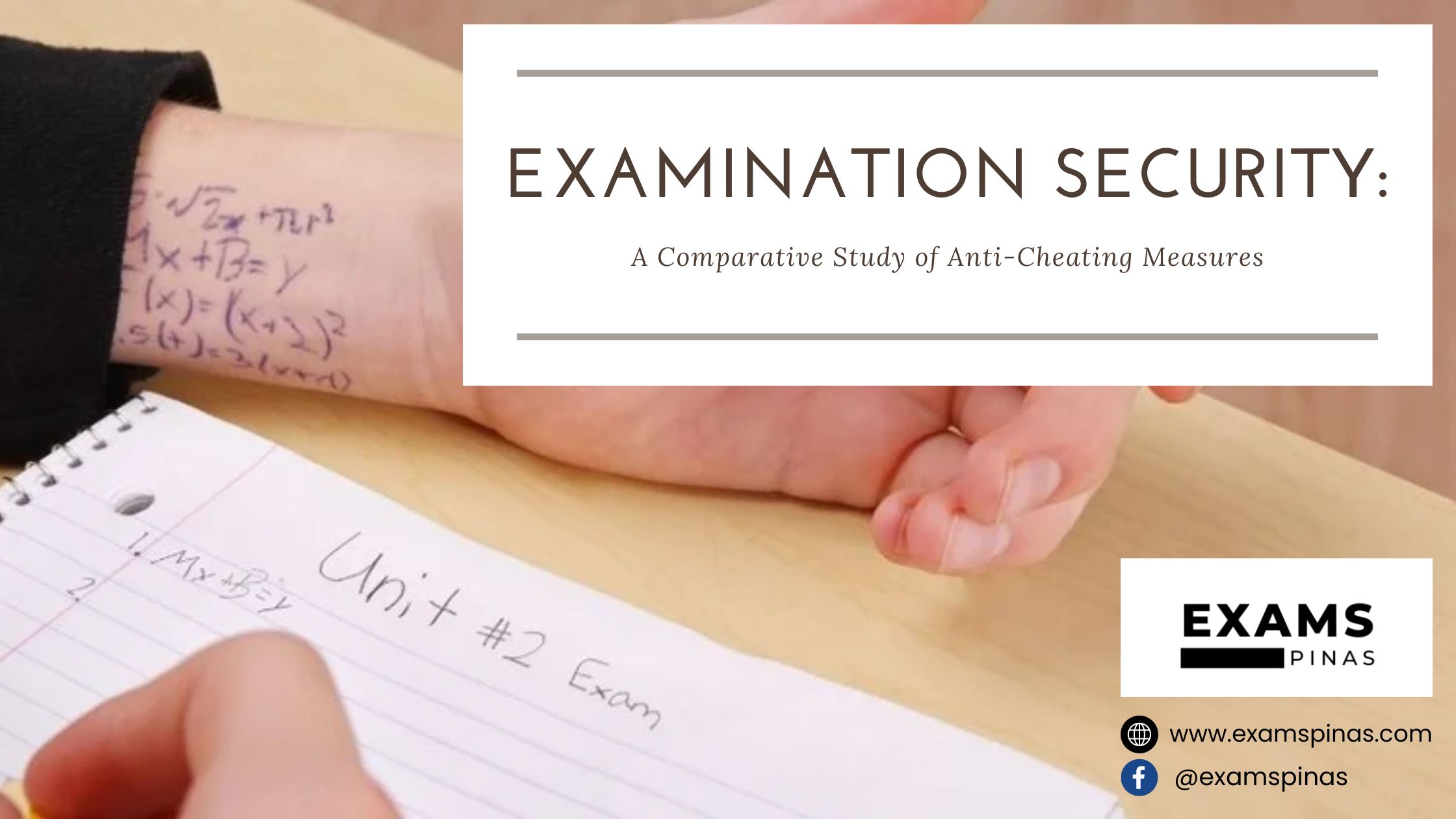Safeguarding Academic Integrity in the Philippines
In the dynamic landscape of education, maintaining the integrity of examinations is paramount to ensuring a fair and equitable assessment of students’ knowledge and skills. This article embarks on a comprehensive exploration, delving into the measures implemented in the Philippines to secure exam integrity. Through a comparative lens, we scrutinize anti-cheating protocols, technology-enabled solutions, and the overall effectiveness of these measures in preventing academic dishonesty.
Anti-Cheating Protocols: Balancing Stringency and Practicality
Traditional Approaches in Public Schools
Public schools in the Philippines often resort to traditional anti-cheating protocols, such as assigning vigilant invigilators, employing random seating arrangements, and utilizing opaque question booklets. These methods aim to deter cheating during exams but may face challenges in implementation due to resource constraints and large class sizes.
Stricter Measures in Private Institutions
Private schools tend to adopt more stringent anti-cheating measures, including personalized exam papers, stricter proctoring, and the use of academic honor codes. While these measures contribute to a more controlled exam environment, they can be resource-intensive and may not be universally applicable across all educational institutions.
Technology-Enabled Solutions: Navigating the Digital Shift
Integration of Online Proctoring Systems
With the advent of technology, online proctoring systems have gained prominence in both public and private educational institutions. These systems leverage webcams and AI algorithms to monitor students remotely during online exams. While this addresses issues related to physical proximity, concerns about privacy and technological accessibility persist.
Secure Exam Software in Universities
Many universities in the Philippines have embraced secure exam software that ensures a controlled digital testing environment. These applications often include features like browser lockdowns, time tracking, and plagiarism detection. However, their effectiveness depends on the level of technological infrastructure and digital literacy within the student population.
Effectiveness of Anti-Cheating Measures: Striking a Balance
Challenges in Implementation and Enforcement
Despite the variety of anti-cheating measures employed, challenges persist in their consistent implementation and enforcement. In public schools, resource limitations and large class sizes may hinder the effectiveness of traditional protocols. Meanwhile, in private institutions, stricter measures might create an environment of mistrust.
Cultural Implications and Student Perceptions
The effectiveness of anti-cheating measures is not solely determined by their stringency but also by cultural factors and student perceptions. In a study-centric culture, the fear of academic dishonesty consequences may act as a deterrent. However, a more proactive approach involves fostering a culture of academic honesty through education and open dialogue.
The Way Forward: A Holistic Approach to Academic Integrity
Integrating Education on Academic Integrity
To bolster the effectiveness of anti-cheating measures, there is a need to integrate education on academic integrity into the curriculum. Promoting a culture of honesty, integrity, and a sense of responsibility among students can significantly reduce the inclination towards cheating.
Continuous Adaptation to Technological Advances
In an era of rapid technological evolution, educational institutions must stay abreast of advancements and continuously adapt their anti-cheating measures. This involves investing in robust digital infrastructure, providing training for educators, and implementing agile solutions that align with the changing landscape of examinations.
Striving for Fairness in Assessment
As we navigate the complexities of examination security in the Philippines, it is evident that a multi-faceted approach is essential. Striking a balance between traditional and technology-enabled measures, addressing cultural factors, and fostering a commitment to academic integrity can collectively contribute to a fair and secure assessment environment. In the pursuit of excellence, educational institutions must remain vigilant, adaptable, and committed to upholding the sanctity of examinations.

